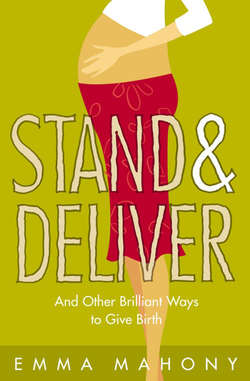Читать книгу Stand and Deliver!: And other Brilliant Ways to Give Birth - Emma Mahony - Страница 13
Ultraconfusing Ultrasound
ОглавлениеWhile ultrasound has its uses (such as assessing more accurate dates, identifying twins and the presentation of the baby for delivery at the end of the pregnancy), it carries with it ethical dilemmas that far outweigh its uses, and any mother who doesn’t want to be scanned during pregnancy is quite within her rights to refuse it.
When you learn that 20 years ago, when scanning was in its infancy, thousands of women were scared silly by being told their babies had ‘golf balls’ in the brain (which turned out to be perfectly healthy brain tissue), it reminds you how recent all this new technology is. The other day, a woman rang the AIMS helpline in tears when a sonographer told her to ‘come back next week, I can’t see the baby’s head’.
Some radical groups maintain that the effects of ultrasound on growing babies and adults in later life have never fully been researched. While the effects are obviously nowhere near as dramatic as the rise in childhood leukaemia after X-rays were used on pregnant women (and Britain was the last country to stop irradiating pregnant women), it nevertheless makes you wonder why we are exposing something as fragile as the beginnings of life to unproven technology.
What is also forgotten in the rush to wave the magic radiographer’s wand is how vulnerable pregnant women are to information. It’s no surprise that most women don’t want to know the sex of their child in this country (it is given as a rule in the States – unless the parents specifically request otherwise). We want that growing baby to be as protected as possible, a mystery up until the moment he or she is born. We don’t always want early expectations heaped upon him or her because of gender, size or some minor birth defect.
My first son was born with a cleft-lip and palate that was corrected by plastic surgery when he was three and six months old, and I am still glad that the ultrasound department failed to pick up this ‘anomaly’. It would have added anxiety and worry to the whole family during an otherwise stress-free pregnancy. I wouldn’t have changed the course of my pregnancy knowing this, but I might have looked up unregulated sites on the internet and then worried myself stupid with other people’s tales of woe.
Ultrasound is technology without responsibility. It is you, not the radiographer, who has to deal with the fall-out of whatever probability ratio the scan brings up, and whatever further tests you might be offered. As the Government announces plans to mass-screen every woman in the UK (at a cost of £153 million to us taxpayers), few people have questioned why. Some groups for people with disabilities have even described the decision as ‘mass eugenics’ by another name. One woman who had decided that she did not want ultrasound rang up the doctor’s surgery to inform them that she did not want to have her 13-week scan. The receptionist became shirty with her about her decision, and wouldn’t let her cancel. Finally, to put an end to the discussion, this woman simply reminded the receptionist that her baby was really none of the receptionist’s business.
So, before you even go in for your scan, discuss the bigger picture with your partner. Talk about what you can cope with as parents, and then decide on what you’ll do on that basis. Don’t feel you have to be put on the conveyor belt without a choice.
